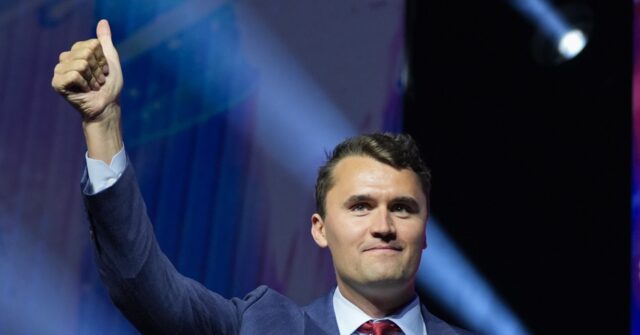This is a relatively new way of understanding Kirk, one that might surprise many of those who casually followed his adventures on social media. But it is also a profoundly positive development — with a few potential pitfalls to be avoided.
The United States is one of the most religious countries in the West, a fact that has remained the same since it first astonished the French writer Alexis de Tocqueville nearly two centuries ago.
Tocqueville argued that it was precisely because the U.S. separated church and state that religious feeling was so strong: when people resented their government, they never took their frustrations out on their church, as people did in Europe.
Religious fervor has waxed and waned in its intensity over several centuries of American history, but we are long overdue for a new “great awakening.” Since the turn of the century, church attendance has dropped, as have birth rates. While communism collapsed 35 years ago, our society faces new ideological challenges: radical Islam, the managed authoritarianism of China, and “democratic socialism,” communism’s heir.
These rivals have gained footing because Americans no longer feel confident in our own founding principles — whether the Judeo-Christian moral precepts that are the basis of our national culture, or the liberal (small “l”) ideas from which our notions of freedom and self-government are derived.
All of these have roots in Christianity — which is why even some Jewish thinkers have called for a Christian revival to save America.
Charlie Kirk did not start out as a religious figure. He began as a conservative activist in the Tea Party era, a movement with a libertarian streak.
When Charlie first reached out to Breitbart News, as a high school student inspired by the late Andrew Breitbart, he was primarily concerned with fiscal and economic issues. He delved into Christianity over time, as he matured and began looking for answers beyond politics.
Christianity quickly became Kirk’s foundation, the idea that organized his other thoughts; the conviction that gave him the confidence to face increasingly hostile opponents; the grounding he needed as he reached ever loftier political heights. He married and had children, and encouraged others to do the same. And as he spoke openly about his faith, he gave others courage to do so, and to defy an often hostile secular popular culture.
All of that is to the good. Yet an explicitly Christian politics must also grapple with the fact that our society is diverse on questions of faith.
Without an ecumenical touch that creates space for Jews, Muslims, Hindus, and others who share similar values, the movement Kirk inspired risks alienating potential allies. And if explicitly hateful voices are elevated — like anti-Israel conspiracy theorists — the movement will create new opponents.
Jewish and pro-Israel conservatives are part of the coalition that brought Trump to power — twice. We also gave Trump foreign policy goals that he achieved, and to which he can point as he defines his legacy.
We cannot easily be replaced, but some on the right are treating us as expendable.
Charlie Kirk was a friend to Israel and the Jewish people, and the Christian revival inspired by his life and martyrdom should be as well.
Joel B. Pollak is Senior Editor-at-Large at Breitbart News and the host of Breitbart News Sunday on Sirius XM Patriot on Sunday evenings from 7 p.m. to 10 p.m. ET (4 p.m. to 7 p.m. PT). He is the author of The Zionist Conspiracy Wants You, now available on Amazon. He is a winner of the 2018 Robert Novak Journalism Alumni Fellowship. Follow him on Twitter at @joelpollak.
Breitbart News
Read the full article .


